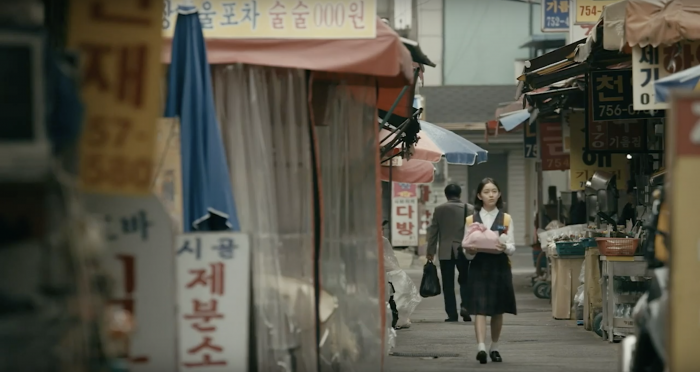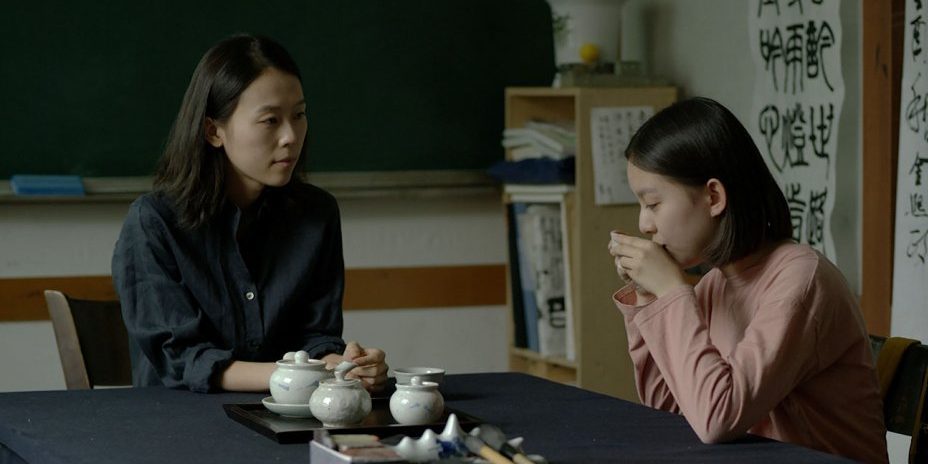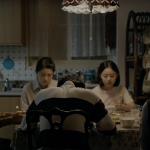Director: Kim Bo-ra
London Film Festival 2019 review
LFF highlight House of Hummingbird observes the understated journey of the young Eun-hee (Park Ji-hu) as she wanders through 1994 Seoul with no defined path in mind, and the film is usually at its most immersive when its own course feels similarly indeterminate.
Though there’s plenty of conflict to be found here, Kim Bo-ra’s quietly affecting period piece is refreshingly content to spend the bulk of its 138-minute runtime simply soaking in the moment, while any narrative progression feels seamlessly organic and borderline-incidental. Sure, friends come and go, connections form and break, and feelings change and fester, but Kim’s film seems less concerned with delivering a tightly constructed story than in establishing a lucid sense of reality, regarding each new development with a serene and melancholic air of acceptance.
Oftentimes, the 14-year-old Eun-hee is a deceptively passive presence as the drama unfolds around her. Her home life in particular is fraught with conflict, from her parents’ frequent fights, to the brother who habitually beats her. At school, meanwhile, Eun-hee regularly neglects her studies to hang out with her ever hesitant boyfriend or engage in some casual shoplifting with her best friend.
When Eun-hee discusses her problems – which also include a suspicious lump that’s developed under her ear – it’s usually through a lens of semi-ironic detachment, like when she jokes to her friend about committing suicide to make her abusive brother feel guilty. And while Eun-hee eventually finds someone she can truly open up to in her new cram school tutor Young-ji (Kim Sae-byuk), it isn’t long before her trust is severely tested.

All the while, Kim peppers Eun-hee’s environment with allusions to the drama’s historical and socio-political context, culminating in the collapse of Seongsu Bridge that claimed the lives of 32 people in October, 1994. Nonetheless, the picture’s most fruitful world-building unfolds on a more personal level, as Kim borders Eun-hee’s presence with enough intriguing supporting players to suggest that the film’s reality could (and repeatedly does) expand outwards in a multitude of directions at any given point.
In this and other ways, House of Hummingbird warrants comparison to the work of Yasujiro Ozu, whose films also imbued static and mundane imagery with melancholic weight, as well as frequently excluding the obvious “milestone” moments of life to focus on the lead-up and the aftermath. In Kim’s feature, we see an example of the latter when a member of the family passes away. Instead of making an easy dramatic gut-punch out of the character’s death, House of Hummingbird skips forward to the end of the funeral, when Eun-hee only briefly alludes to the news in a phone call.
It’s a shame that Kim doesn’t show the same restraint in the film’s final stretch, when a new tragedy is more forcefully deployed as the story’s third-act bombshell. Though the delivery may be true to the emotional journey of Eun-hee, it marks a questionable break from the understated sensibilities that had defined House of Hummingbird up to this point, momentarily marring the film’s delicately composed atmosphere for the sake of emotional button-pushing.
This slight miscalculation aside, however, House of Hummingbird thrives as a quietly compassionate snapshot of a moment in time beset by uncertainty and loss. As Eun-hee indecisively drifts from episode to episode, there are moments where she seems invisible to the world around her. With that in mind, it seems there’s no greater tribute that Kim could pay to her main character than to create a rich cinematic space for her viewers to feel vividly and appreciatively present.





